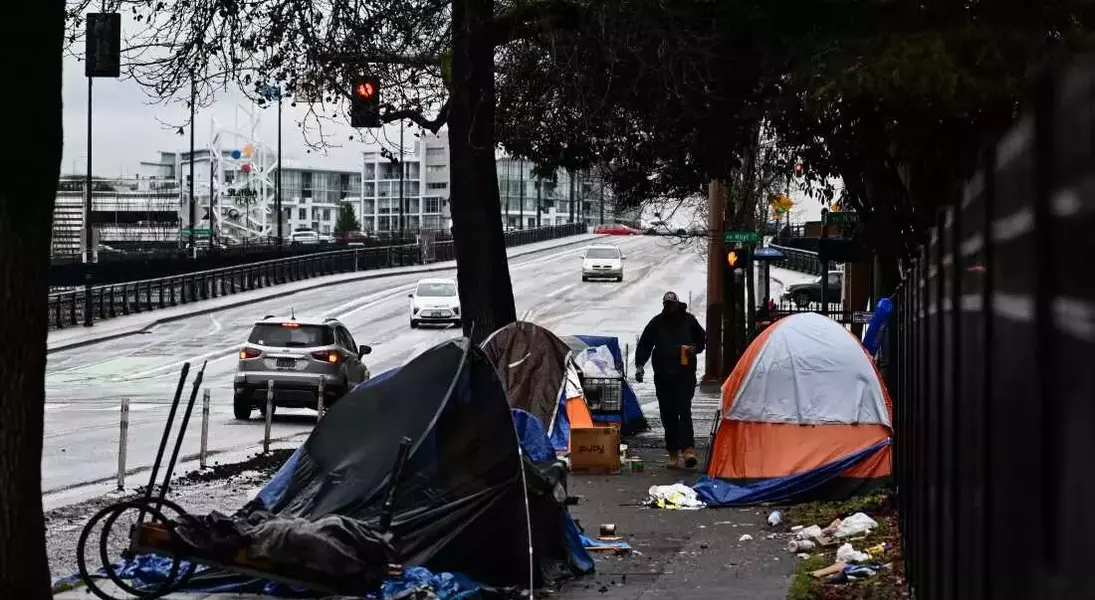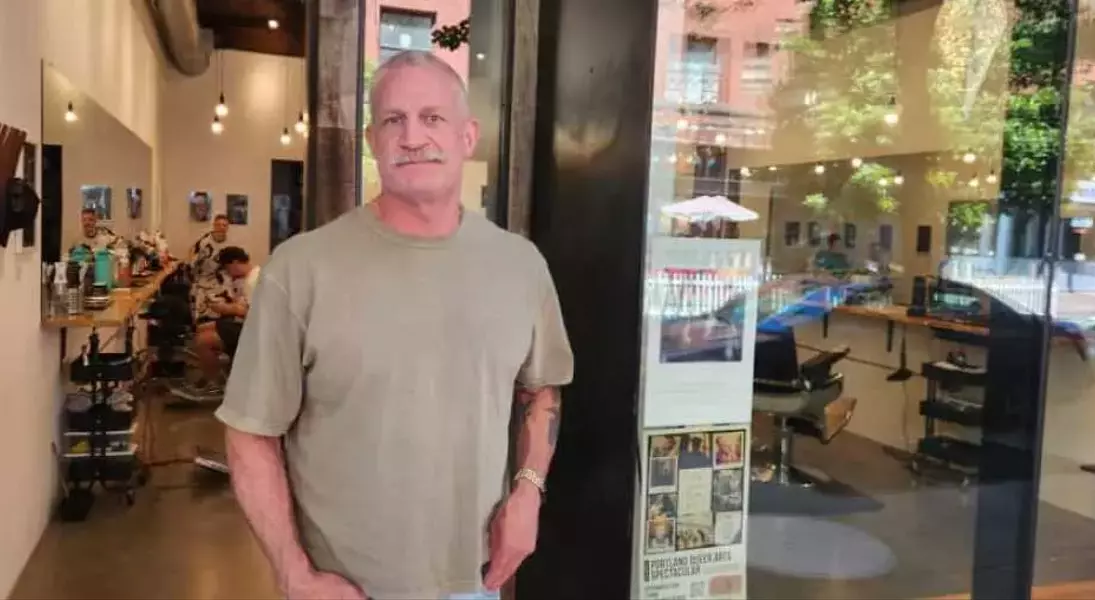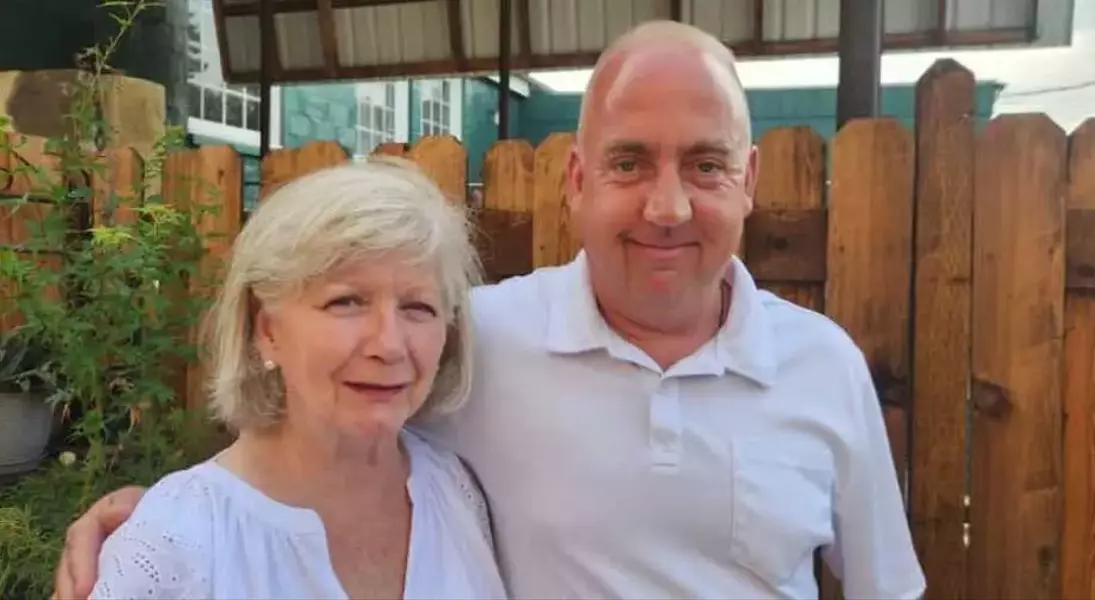






A growing number of American cities are grappling with the complex challenges of homelessness, intertwined with issues of severe addiction and mental health conditions. While these challenges are often attributed to specific political ideologies, a notable convergence of approaches is emerging across the political spectrum. Both former President Trump and several Democratic-led states are advocating for and implementing expanded forms of civil commitment, a legal process that allows for involuntary medical care. This shared focus on compulsory treatment underscores a widespread frustration with the current state of affairs and a desire to restore public order, even as it ignites fervent debate regarding personal freedoms, the ethical implications of forced intervention, and the substantial financial and logistical hurdles involved in providing comprehensive, long-term care.
In Portland, Oregon, a city often associated with liberal policies, residents like Logan Whalen, a barbershop owner, voice growing exasperation. Whalen, despite identifying as a liberal Democrat, expressed his discomfort with the visible presence of drug use and homelessness near his business, recalling an incident where fentanyl smoke was blown in his face. This sentiment of 'compassion fatigue' resonates with many who feel that existing strategies have fallen short in addressing the deteriorating public health and safety concerns in urban environments.
Former President Trump has been a vocal proponent of a more stringent approach, advocating for the increased use of civil commitment to compel homeless individuals into long-term institutional settings. In April 2023, he released a campaign video emphasizing the need to return those with severe mental illnesses and profound disturbances to mental institutions. Following this, in July, he signed an executive order encouraging state and local governments to broaden the application of forced medical care, asserting that this would help restore public order. His administration views existing Democratic-favored approaches, such as 'housing first' initiatives and 'harm reduction' programs, as inefficient uses of taxpayer money, suggesting a redirection of these funds towards more mandatory treatment models.
Interestingly, this push for expanded civil commitment is not confined to Republican circles. States governed by Democrats, including California, New York, and Oregon, have independently moved to augment their involuntary medical care statutes. Massachusetts, another blue state, already reports some of the nation's highest rates of forced commitments for individuals struggling with drug addiction. Oregon State Representative Jason Kropf, a Democrat, spearheaded his state's new law after witnessing the profound struggles of families and communities. He articulated the delicate balance between aiding those in crisis who cannot help themselves and preventing the over-institutionalization of vulnerable populations.
Judy Thompson, a long-time advocate for mental health services in Oregon, supported the new standards, driven by her personal experience. Her son, Alton Aanderud, diagnosed with bipolar schizoaffective disorder, experienced a dangerous mental health crisis in 2019 that culminated in a car crash. Thompson firmly believed that legal intervention was necessary to secure the medical attention her son desperately needed, arguing for a legal framework that allows for action before situations escalate into severe crises. Alton himself, while acknowledging the unsettling nature of involuntary commitment, conceded that it was a crucial step in his recovery, enabling him to receive vital medical assistance.
However, the implementation of such policies is fraught with complexities and concerns. Alton Aanderud recounted the disruptive and disorienting experience of being hospitalized, emerging with nothing and having to rebuild his life from scratch. He underscored that many homeless individuals lack the robust support networks, like his mother's, that are essential for successful reintegration. Dr. Kenneth Minkoff, a psychiatrist and expert in government-mandated health care, cautioned against the dehumanizing aspect of simply removing people from public view. He stressed the importance of ensuring that such interventions are genuinely therapeutic and not merely punitive, advocating for a cautious and sparing application of civil commitment.
Drug policy researcher Morgan Godvin, who personally experienced homelessness and heroin addiction, criticized the focus on coercive measures, arguing that they infringe upon civil liberties. She questioned the rationale behind pursuing the most expensive and restrictive options, particularly when many of the necessary facilities and resources for institutionalization are currently non-existent. Experts in the fields of addiction and mental illness often suggest that less intrusive interventions, such as accessible healthcare and housing subsidies, could benefit a larger proportion of the homeless population.
A critical question that remains largely unanswered is the funding mechanism for a nationwide expansion of civil commitment and long-term institutional care. According to federal data, approximately 270,000 Americans live on the streets, far exceeding the current capacity of residential facilities and trained medical personnel. Historically, congressional Republicans have even cut substantial amounts from Medicaid, the primary government insurance program funding addiction and mental health treatments in the U.S. While White House officials, speaking anonymously, suggest that efficiency and accountability could address the issue without additional funding, Oregon's Representative Kropf highlights his state's allocation of $65 million for new residential facilities, signaling the significant costs involved in such an undertaking. Dr. Minkoff further emphasized that treating homeless individuals with severe conditions is inherently expensive due to their complex medical needs and the necessity of ongoing supportive housing to prevent relapse.
Judy Thompson, despite her advocacy for Oregon's expanded civil commitment law, expresses apprehension regarding a broader, nationwide application under Trump's executive order. She believes Oregon's law is carefully structured, with limitations on hospitalization duration. Nevertheless, she fears that other states might implement forced institutionalization in ways that merely aim to remove homeless individuals from public sight, rather than genuinely assisting them. This concern highlights the double-edged nature of civil commitment: while it possesses the potential for beneficial intervention, it also carries the inherent risk of being misused to marginalize and further disempower vulnerable populations. Both supporters and critics agree that the ultimate efficacy and ethical integrity of these policies will depend heavily on the specific details of state laws and their commitment to upholding individual rights while addressing the multifaceted challenges of homelessness.
